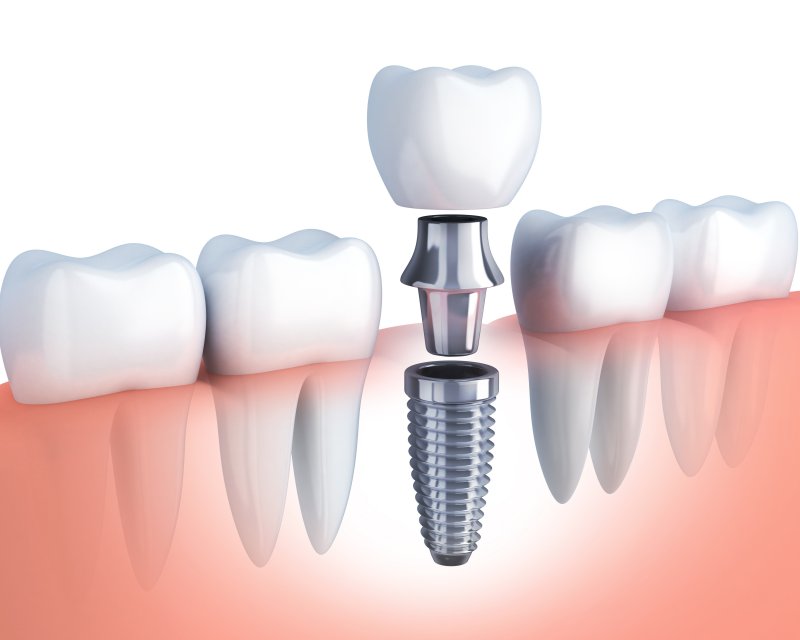What to Do If Your Dental Implant Feels Loose
March 18, 2022

It may be exciting to feel your baby teeth loosen, but the same isn’t true for dental implants. After all, the latter means you’re at risk of losing the smile you invested time, money, and energy to create. Assuming you don’t want such a thing to happen, then, a loose dental implant is a problem you ought to fix as soon as possible.
Knowing you have a problem, however, doesn’t always mean you know what to do about it. Therefore, to help those of you with a loose dental implant of your own, listed below is a guide to the possible causes and treatments for the condition. Read up on them, and learn what to expect from your dentist when discussing your next steps.
What Causes Dental Implants to Loosen?
Timing is an important factor in determining the reason for a dental implant loosening. By knowing how long after placement it began, certain causes can be marked as more or less likely, and so proper treatment plans can be drafted more quickly.
Most dental implant loosening occurs within the first few weeks of the implant’s placement, often because the implant failed to properly bond with the jawbone. (This bonding process is called osseointegration). Loosening that occurs shortly after placement, though, can also be caused by overloading or teeth grinding, in which implants are disturbed by excess pressure that affects the implant’s connection to the jaw.
On a rarer occasion, dental implants can loosen months or even years after placement. In such cases, one likely culprit is peri-implantitis, an infection similar to gum disease that can undermine the bone supporting the implant. Another possible cause is the patient’s dental prosthetics (dentures, bridges, crowns, etc.) becoming unstable due to loose screws, bad cement and the like.[MZ1]
Responding to a Loosened Dental Implant
Whether your dental implant loosened soon after placement or long ago, it’s very important that you schedule an appointment with your local dental practitioner. Depending on how quickly you do so, you may be able to save the implant and require only minor adjustments.
During the appointment, your specialist will look for signs of infection and inflammation in addition to implant loosening or damage. Medical images will be taken to discern what is going on beneath the gum line, and you’ll be asked about any symptoms you’ve been experiencing lately. In doing so, it can be determined if the movement you’ve noticed in your implant may be caused by a loose abutment or prosthetic, or if it stems from the implant itself.
If the problem truly is the implant, early treatment could possibly save it, especially in the case of infection or gum recession. However, if the implant is very loose or unstable due to severe infection, bone loss, or other more serious factors, it will likely have to be removed. Fortunately, even if removal becomes necessary, another implant can be placed after the area has healed.
If you’re suffering from a loose dental implant, don’t wait around and hope the issue will resolve itself. Know what you’re dealing with, see your local dentist, and preserve your precious smile!
About the Author
Dr. John Thompson is a longtime dentist based in Corpus Christi, TX, having earned his Doctorate of Dental Surgery from the Baylor College of Dentistry in 1985. He prides himself on continuing to stay abreast of the latest dental advancements —including the use of dental implants — and maintains membership in both the Academy of General Dentistry and the Texas Dental Association. He currently practices at his self-named clinic and can be reached at his website or by phone at (361)-242-3151.
No Comments
No comments yet.
RSS feed for comments on this post.
Sorry, the comment form is closed at this time.
